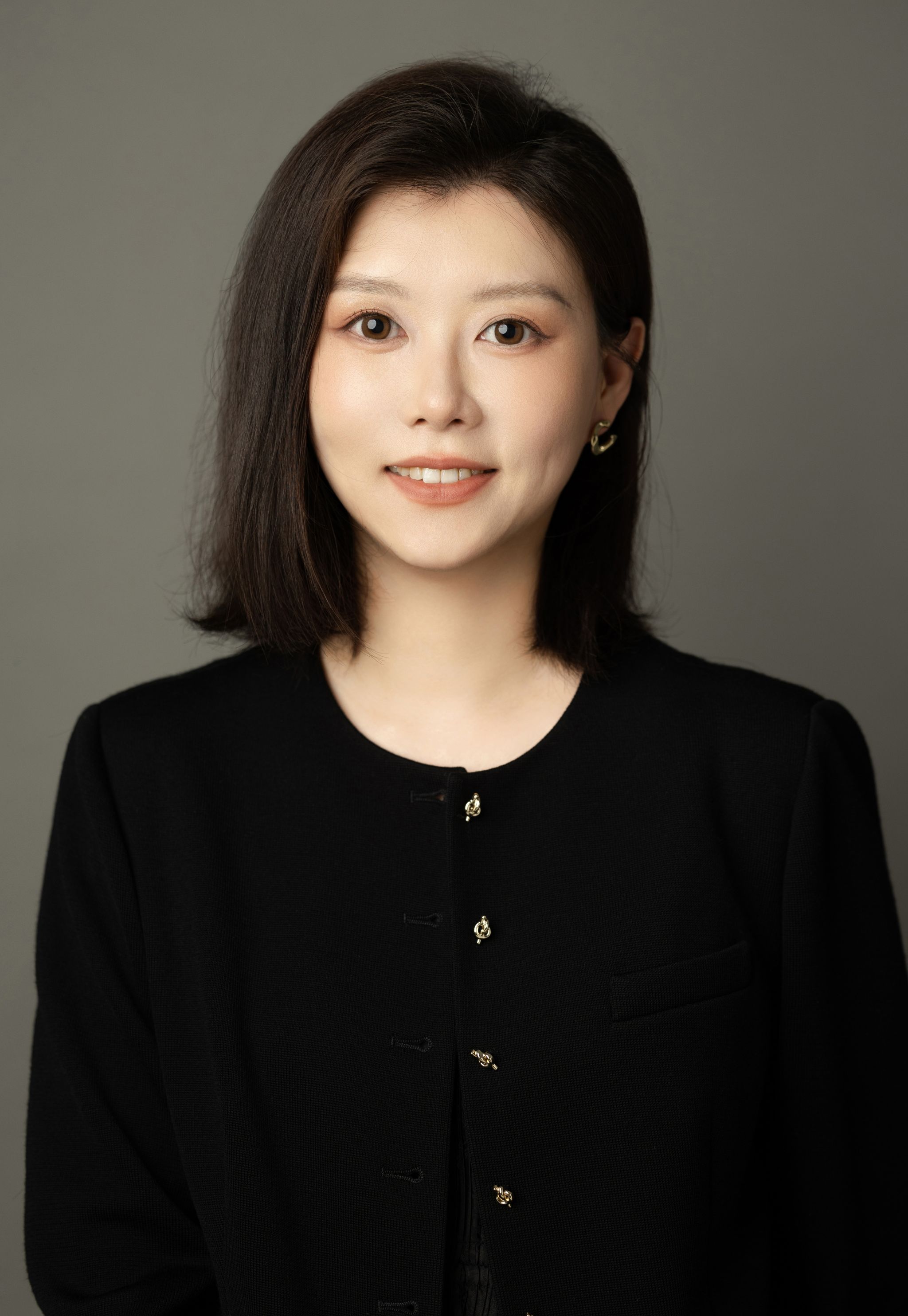
副教授
博士生导师
Email:Wsy3192@shu.edu.cn
研究方向:博物馆学、博物馆疗愈、文化遗产阐释、博物馆观众研究
本课题组常年招收本科生、硕、博士研究生,欢迎博物馆学、文化遗产研究、应用心理学、设计类、计算机类或相关学科的优秀人才与我联系!
欢迎关注课题组公众号:博物馆疗愈实验室

个人简介:
王思怡,现为上海大学文化遗产与信息管理学院副教授,博士生导师,上海“晨光学者”。国际博物馆协会(ICOM)可持续发展委员会副主席,ICOM定义委员会理事,国家社科基金函评专家,中国博物馆协会博物馆学专委会委员,中国博物馆协会青年工作委员会委员,中共一大纪念馆·上海大学国家革命文物协同研究中心客座研究员,上海市重点创新团队骨干成员,上海自然科技教育联盟“观众研究与评估”专委会专家顾问。曾发表40余篇包括A&HCI及SSCI收录在内的高水平论文,入选 2024中国知网高被引学者Top1%。“21世纪国际博物馆学基础书系”执行主编,主持国家社科基金项目2项,参与2项国家社科基金重大项目,多项国家决策咨询项目、国家文物局及省部级项目。主要研究方向包括博物馆学理论、博物馆疗愈、文化遗产阐释和博物馆观众研究等。
Dr. Siyi Wang is an associate professor in the Museum Studies programme at Shanghai University, vice chair of ICOM-Sustain and member of ICOM-Define. She joined Shanghai University in December 2019 after completing her Ph.D. in Museum Studies at the School of Art and Archaeology, Zhejiang University, in June 2019. She was funded by the China National Scholarship to be a joint-PhD student in the Museum Studies program of George Washington University, USA. She also holds Diplomas in Gemology from the Gemological Association of Great Britain and the Gemological Institute of the China University of Geosciences. She has research interests in museology, visitor studies, museum therapy, and heritage studies. Her forthcoming monograph Body-on Museology: Multisensory Exhibition Insight explores the sensory connection and engagement in shaping an immersive experience with emotion, reminiscence, personal relevance and reflection.
教育背景:
2010.9-2014.6 中央民族大学历史学学士
2014.1 英国宝石学会(FGA)珠宝鉴定师资格证
2014.1 中国地质大学珠宝学院(GIC)珠宝玉石鉴定师资格证
2015.7-2015.9 西澳大学文化遗产硕士交换
2014.9-2019.6 浙江大学考古学博士
2016.9-2017.10 美国乔治华盛顿大学联合培养博士
工作经历:
2019.12-至今 上海大学
代表性科研论文:
[1] Wang, S*. A Bodies-on Museum: The Transformation of Museum Embodiment through Virtual Technology. Curator: The Museum Journal, 2023,66(1):107-128. https://doi.org/10.1111/cura.12534
[2] Wang, S* & Wu, X. Revolutionary Exhibition and Youth Identity: A Visitor Study of the Shanghai Sihang Warehouse Battle Memorial. Museum Management and Curatorship,2022,38(3):293-316. https://doi.org/10.1080/09647775.2022.2158909
[3] Wang, S & Yin, K*. Living Wisdom and Intangible Heritage: The Case of Hu Brush. The Historic Environment: Policy & Practice, 2022, 13(1): 46-70. https://doi.org/10.1080/17567505.2021.2007642
[4] Wang, S., Yu, L. & Rong, Y*. Measuring museum sustainability in China: a DSR model-driven approach to empower sustainable development goals (SDGs). Humanit Soc Sci Commun 2024, 11: 982. https://doi.org/10.1057/s41599-024-03437-z
[5] F. Bu, Z. Wang, S. Wang* and Z. Liu, "An Investigation Into Value Misalignment in LLM-Generated Texts for Cultural Heritage," in IEEE Transactions on Emerging Topics in Computational Intelligence, doi: 10.1109/TETCI.2025.3597289.
[6] Wang, S., Su, Z., & Su, S*. Negotiating difficult (in)tangible heritage: the intricate journey of museum making for the “Dai-ichi Saloon” comfort station in Shanghai. Inter-Asia Cultural Studies, 2024: 1–25. https://doi.org/10.1080/14649373.2024.2389718
[7] Wang, S*, Duan Y, Yang X, Cao C, Pan S. ‘Smart Museum’ in China: from technology labs to sustainable knowledgescapes. Digital Scholarship in the Humanities, 2023,38(3):1340-1358. https://doi.org/10.1093/llc/fqac097
[8] Wang, S*. Memorials and memory: The curation and interpretation of trauma narratives—using the examples of exhibitions on the theme of “comfort women” in East Asian Society. Chinese studies in history,2020, 53(1):56-71. https://doi.org/10.1080/00094633.2019.1682405
[9] Wang, S. & Zhou, W*. Museum without Objects: A Phenomenological Study of the Cinema Museum. Critical Arts, 2022, 36:5-6, 162-176. https://doi.org/10.1080/02560046.2023.2190597
[10] Wang, S. & Zhou, W. Museum and body in the space of virtual technology: From a perspective of phenomenology. In Kerstin Smeds (ed.). The future of Tradition in Museology, ICOFOM, Paris,2019:179-183.
[11] Wang, S*. Museum as a Sensory Space: A Discussion of Communication Effect of Multi-Senses in Taizhou Museum. Sustainability,2020,12:3061. https://doi.org/10.3390/su12073061
[12] Wang S, Yu L, Qiu R*. Evolutionary Game Analysis of Participations in Museum Public‒Private Partnership Projects Based on System Dynamics. Systems. 2023, 11(1):7. https://doi.org/10.3390/systems11010007
[13] Wang, S*. Who Am I? Exploring the Role of Religious Beliefs in Shaping the Ethnic Identity of Tibetan Muslims: A Case Study in Hebalin, Lhasa, Tibet. Religions. 2024,15(11):1351. https://doi.org/10.3390/rel15111351
[14] Bu, F., Chen, Y., Zhu, Y., & Wang, S*. ‘We cannot, nor do we have the right to speak forgiveness for the grandmothers’: a study of visitor comment books at the Chinese Comfort Women Historical Museum in Shanghai. Museum Management and Curatorship, 2024: 1–25. https://doi.org/10.1080/09647775.2024.2431907
[15] Wang, S*. The Landscape of Historical Memory: The Politics of Museums and Memorial Culture in Post-Martial Law Taiwan. ARCHIV ORIENTÁLNÍ 2022, 90(3): 621-624. https://doi.org/10.47979/aror.j.90.3.621-624
[16] Wang, S*. Sensing the societal development and cultural transformation in China. The Senses and Society,2022. https://doi.org/10.1080/17458927.2022.2161748
[17] Wang, S*. An Archaeological Perspective of Alcoholic Beverages in the Song Dynasty (960–1279). Archaeologies: Journal of the World Archaeological Congress, 2022,18:436-467. https://doi.org/10.1007/s11759-022-09452-3.
[18] Wang, S*. Creation from Creature: Plants and Animals on the Silk Roads: curated by Zhao Feng, China National Silk Museum, Hangzhou, June 18 – September 5, 2021. The Senses and Society, 2023,18(1):75–80. https://doi.org/10.1080/17458927.2022.2161750
[19] Wang, S*. Museums for peace: in search of history, memory and change: edited by Joyce Apsel, Clive Barrett, and Roy Tamashiro, Abingdon, UK: Routledge, 2023, 288 pp., (eBook), open access, ISBN 9781003290896. Museum Management and Curatorship, 2024, 39(6): 856–858. https://doi.org/10.1080/09647775.2024.2387545
[20]王思怡,龚雪旦.多感官设计对于博物馆疗愈的功能分析与实践——以上海大学博物馆疗愈工作坊为例.东南文化,2024,(05):171-180.
[21] 王思怡、练文婷. 作为“幸福处方”的物件:博物馆文物疗愈要素研究——以上海博物馆为例.中国博物馆,2023(2):38-46.
[22] 王思怡.何以“具身”?论博物馆中的身体与感官.东南文化,2018(5):115-120.(知网高被引、高下载论文,PSCI指数前0.1%)
[23] 王思怡. 新观众、新方法:试论博物馆的疗愈功能.中国博物馆,2018(2):73-80.
[24] 王思怡. 博物馆观众研究的反思与演变. 中国博物馆,2016(2),转载于中国人民大学复印资料《文化研究》2017(1):83-91.
学术专著:
1.Nina Levent,Alvaro Pascual-Leone 著,王思怡,陈蒙琪 译:《多感知博物馆:基于触摸、声音、嗅味、空间与记忆的跨学科视野》,浙江大学出版社,2020年。
2.[英] 蒂莫西·阿姆布罗斯、克里斯平·佩恩 著、王思怡、郭卉 译:《博物馆基础(第4版)》,江苏凤凰文艺出版社,2022年。
科研项目:
1. 主持:
● 《文化遗产学学科体系建设研究》子课题《文化遗产学的发展脉络与学科属性》,国家社科基金文化遗产保护传承研究重大专项,2024.12-至今
● 《博物馆民族志视角下的中国革命文化展览红色叙事研究》,国家社会科学基金项目,2020.9-2025.6
● 《革命类纪念馆“叙事游戏型”教育活动设计与实践——以中共一大纪念馆为例》,中共一大纪念馆-上海大学国家革命文物协同研究中心项目,2023.12-2024.12
● 《基于“大一沙龙”历史空间的博物馆多感官展示及教育》,2022年度“晨光计划”,2022.12-至今
● 《“博物馆里的中国”文化遗产百人百物展》,教育部港澳台事务办公室,2021.9-至今
● 《基于国际最佳遗产组织优秀实践案例的文化遗产利用可持续发展研究(2003-2023)》,教育部中外人文交流中心2023年度人文交流专项课题,2023.7-2024.9
2. 主要参与:
● 《民族大调查的学术回顾、文献整理与当代价值研究》,国家社科基金重大项目,2019.12-至今
● 《扩大社会力量参与文化遗产保护问题研究》,国家社科基金重大项目,2022.1-2025.7
● 《博物馆与可移动文物管理十四五规划前期研究》,国家文物局,2019.11-2020.5
● 《文物事业改革发展“十四五”规划预研究》,国家文物局,2019.5-2019.12.
● 《博物馆事业发展系列研究》,中宣部,2019.5-2019.11.
● 《十四五”时期,文博产品开发领域发展研究课题》,上海文旅局,2019.8-2019.9.
科研获奖:
1.《博物馆观众研究的反思与演变》获第二届全国博物馆学优秀学术成果
2.《最佳遗产利用案例集(一)》(执行主编)获2023年度全国文化遗产优秀图书
3. 2024年度上海大学校长奖
4. 《20世纪西方博物馆研究著作指南》(执行主编)获2024年度全国文化遗产优秀图书
5. 《博物馆基础(第4版)》获第四届全国博物馆学优秀学术成果
